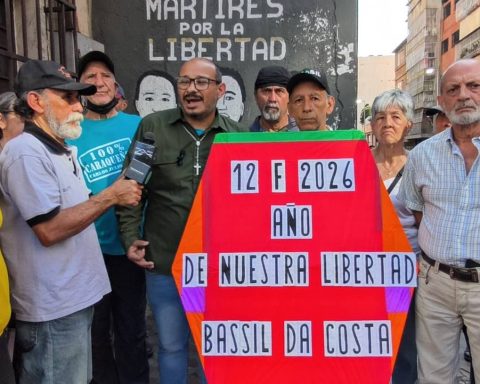In the Extraordinary Official Gazette, number 6,855, the Law on Supervision, Regularization, Action and Financing of Non-Governmental Organizations (NGO) and Non-Profit Social Organizations was published.
The law prohibits promoting fascism, receiving resources for terrorist acts and carrying out political party activities, among other provisions.
After the publication of the legal instrument, which includes 39 articles, two transitional provisions and two repealing provisions, the portal reports Banking and Business that the objective is to establish the regime for the constitution, registration, operation and financing of non-governmental organizations and non-profit social organizations, as associative forms oriented towards the co-responsible participation of society, in accordance with the provisions of the Constitution and ratified international treaties. for Venezuela.
It should be noted that those non-governmental organizations and non-profit organizations whose constitution and operation are governed by special laws are excluded, due to the nature of their purpose.
It specifies that this regulation It is governed by the principles of preeminence of human rights, equality, participation, co-responsibility, solidarity, honesty, transparency, accountability, sovereignty and national self-determination.
Article 10 of the law states that non-governmental organizations and non-profit social organizations may be established under any legal form or name.
“However, to obtain legal personality they must be established under the forms of associations, corporations, civil societies or lawful private foundations, provided for in the Civil Code,” the text adds.
Article of incorporation
Likewise, the standard establishes that the statutory articles of incorporation of the non-governmental organization or non-profit social organization must indicate:
1.- The name, nature and address.
2.- The object and purposes.
3.- The duration of the organization.
4.- Territorial scope of the organization.
5.- The identification of the founding and/or associate members.
6.- The regime of membership and exclusion of members and/or their rights and obligations.
7.- The organization, internal structure and powers.
8.- The heritage and resource administration regime.
9.- Inventory of assets at the time of incorporation.
10.- The disciplinary regime.
11.- The regime for modifying the statutory constituent document.
12.- The regime for extinction, dissolution and liquidation of the organization.
13.- The details of the impact on assets, in the case of foundations.
14.- If its financing is or will be carried out, totally or partially, through foreign natural or legal persons.
“Non-governmental organizations and non-profit social organizations must establish democratic methods of organization, operation and direction,” the law adds.
Bans
The regulations specify that non-governmental organizations and non-profit social organizations, established in accordance with this law, have the following prohibitions:
1.- Receive financial contributions intended for organizations with political purposes or make financial contributions to said organizations, as well as receive contributions for the financing of terrorism or commit terrorist acts.
2.- Carry out activities of political parties or organizations with political purposes.
3.- Promote fascism, intolerance or hatred for racial, ethnic, religious, political, social, ideological, gender reasons, sexual orientation, gender identity, gender expression or any other nature that constitutes incitement to discrimination and violence.
4.- Any other act prohibited or sanctioned in the legal system.
Transitional provision
The regulations published in the Extraordinary Official Gazette highlight that within ninety (90) days following the entry into force of this law, non-governmental organizations and non-profit social organizations already established and with legal personality, must present to the Office of the Public Registry corresponding to your domicile, updated information on the acts provided for in article 26.
“The registration of the assembly minutes referred to in this provision is exempt from the payment of fees and tariffs provided for in the law and/or ruling that regulates the competent body in matters of public registration,” it adds.
It is important to note that article 26 establishes that once legal personality has been obtained, non-governmental organizations and non-profit social organizations must declare the following acts for registration purposes before the competent body in matters of public registration, through minutes of ordinary or extraordinary assemblies:
1.- Annual update of the inventory of the organization’s assets, with express determination of their sources.
2.- Accounting balances, financial statements and books that must be maintained in accordance with the legislation.
3.- List of donations received with full identification of the donors, indicating whether they are national or foreign, accidental or permanent.
4.- Modifications of the Statutes.
5.- Appointments and/or dismissals of members, associates, administrators, liquidators, auditors and secretaries.
6.- General powers and delegations of powers.
7.- Opening and closing of headquarters.
8.- Modification, expansion or reduction of the corporate purpose.
9.- Modification, extension or termination of the period of validity of the social organization.
The entrance In Official Gazette Law on supervision and regulation of NGOs was first published in Latest News.















